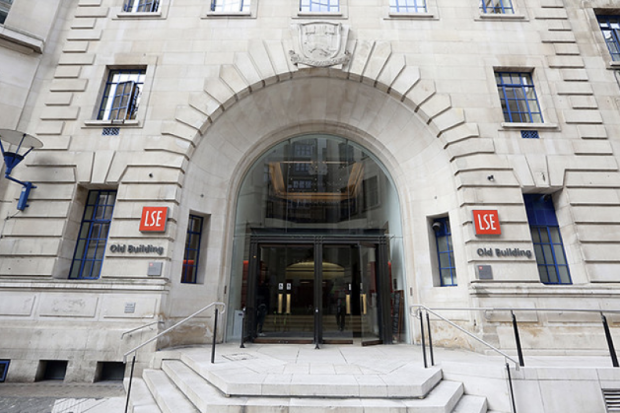The London School of Economics has laid claim to be the first UK university independently verified as carbon neutral.
LSE said that it had been certified by global organisation BSI for the academic year 2020-21 following a reduction in carbon emissions combined with investment in carbon offsetting schemes.
The university has reduced its direct emissions by 44 per cent since 2005 and has sourced all its electricity from renewable sources such as solar and wind since 2009.
The carbon neutral status accounts for direct emissions from gas and fuel used to heat and operate buildings as well as indirect emissions from electricity used for lighting, IT equipment, ventilation and water, waste and business travel.
The university, which has about 70 per cent international students, is not currently accounting for emissions caused by student travel.
The Greenhouse Gas Protocol (GHGP), the global standard for measuring carbon emissions for public and private bodies, sets out three scopes outlining which types of emissions should be reported. The third scope includes indirect emissions associated with supply chains, which many in higher education believe should include student travel. However, reporting on this scope is optional.
A paper published in January 2021 by the COP26 Universities Network, a group of more than 80 UK-based universities and research centres, points out that student flights alone could account for two metric tonnes of CO2 emissions, or 18 per cent of the UK higher education sector’s total, but that the vast majority of universities currently do not report on student flights.
Charles Joly, head of sustainability at LSE, told Times Higher Education that the university recognised that student travel emissions were linked to its operations and it had a duty to reduce these where possible. “It is also important to balance these against the lifelong impact students will gain from their education, including acquiring skills to tackle climate change and mitigate its impacts in their respective countries,” he said.
“LSE has started estimating carbon emissions linked to international students travelling and hope to be able to report these soon. And they form part of our 2050 net-zero carbon target, which applies to our indirect emissions (scope three).”
Since 2015 LSE has invested £4.8 million in energy efficiency measures for campus and residential buildings, including installing LED lights and advanced lighting controls, fitting solar panels, insulating pipes and replacing boilers and chillers.
“Becoming carbon neutral is a key milestone for LSE and reflects years of efforts and investment to reduce our carbon emissions, said Dame Minouche Shafik, director of LSE.
Lord Stern, chair of LSE’s Grantham Institute on Climate Change and the Environment, added: “We hope LSE becoming carbon neutral is an inspiration for others to reduce their carbon footprint. Higher education institutions have a duty to show leadership and advocate for decisive action in tackling climate change, the challenge of our times.”
Register to continue
Why register?
- Registration is free and only takes a moment
- Once registered, you can read 3 articles a month
- Sign up for our newsletter
Subscribe
Or subscribe for unlimited access to:
- Unlimited access to news, views, insights & reviews
- Digital editions
- Digital access to THE’s university and college rankings analysis
Already registered or a current subscriber? Login









